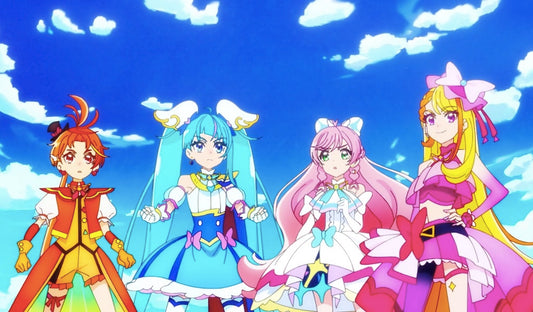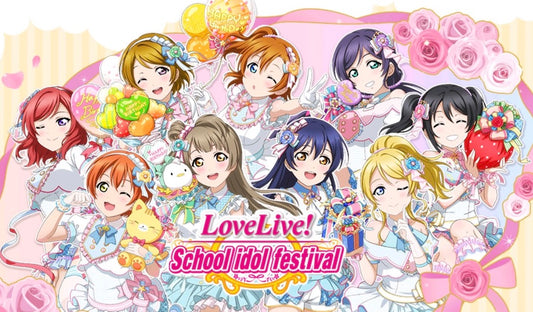Good Idol/Wise Sister: Dia, Ruby, and Notions of Ideal Japanese Women in Love Live! Sunshine!!
Carl LiShare


There are two phrases in Japanese culture that are traditionally said to describe the “ideal Japanese woman.” The first is Yamato nadeshiko, which roughly translates to “Japanese carnation.” The second phrase is ryousai kenbo, or “good wife, wise mother.” The two terms collectively create a seemingly monolithic image of what it means to be the perfect Japanese women, one that is steeped heavily in cultural sexism. However, there is a significant amount of range within this general concept, and I find that the two characters who really demonstrate this plasticity are the sisters of Love Live! Sunshine!!, Dia Kurosawa and Ruby Kurosawa.
This is not to claim that fans of either Dia or Ruby are sexist, or that their appeal comes solely from how they embody the Yamato nadeshiko or ryousai kenbo traits. Rather, by dividing up the traits commonly associated with those concepts, the characters are used to play around with them to show how flexible they can be.
The Yamato nadeshiko is classically viewed as a shy, demure woman. In contemporary times, especially in popular media such as anime and videogames, her appearance is usually slender, and she possesses long, straight, dark hair with neatly trimmed bangs in a style known as a “princess cut.” The “good wife, wise mother” is less about appearance and demeanor and more about approach to life. She is supposed to be endlessly loyal to her husband, and both intelligent and strong-willed enough to raise her children right. Given that men are almost non-existent in Love Live! means that throwing these terms into that context already conceptually refracts them, but these ideas are made further pliable by Ruby and Dia’s characters.

One of Ruby’s primary personality traits is her shyness. She frequently hides behind her friends, and at the beginning of the anime is afraid to stand up to her sister. While this partly comes from fear, it’s also because she cherishes her sister very much. In terms of demeanor, she is very much a Yamato nadeshiko. Yet appearance-wise, it is Dia who embodies the stereotypical image more than any other character in Love Live!

When looking at Dia’s personality, she embodies many of the values in “good wife, wise mother.” At first, Dia (as student council president) adamantly refuses to let a school idol club form. While she seems antagonistic, Dia is essentially showing tough love, having experienced the hardship of trying to become a school idol. If these new girls can’t stand up to Dia, how can they possibly deal with that world? Here, Dia is playing the role of the wise mother, while her desire to protect both her sister and her old friends, Mari and Kanan, showcase the loyalty expected of a “good wife.” Ruby is similarly devoted to her friends and Dia.
However, there are elements of both characters that are essentially Yamato nadeshiko/”good wife, wise mother” traits taken in unusual directions. Take for instance Dia’s desire to want the best for those she cares for. This combines with Dia’s hyper-competitiveness to form a level of aggressiveness that is not generally associated with the “ideal Japanese woman.” Similarly, Ruby also shows the strength of her inner resolve by refusing to capitulate to her sister’s initial forbidding of school idol activity, defying the loyalty expected of her. Ruby’s appearance is also more in line with a contemporary “ideal wife” image perpetuated by otaku-oriented anime, manga, and games.
Aspects of the “ideal Japanese woman” are distributed across both Dia and Ruby Kurosawa. It’s enough that they can both be thought of as falling in line with that tradition, but that would mean there is more than one version of this idea. After all, Dia and Ruby are two very different characters. Furthermore, these same traits are closely associated with other qualities in Dia and Ruby that might not be considered “ideal,” but only because they possess variations on Yamato nadeshiko/”good wife, wise mother”-esque traits that can also exceed those boundaries.






